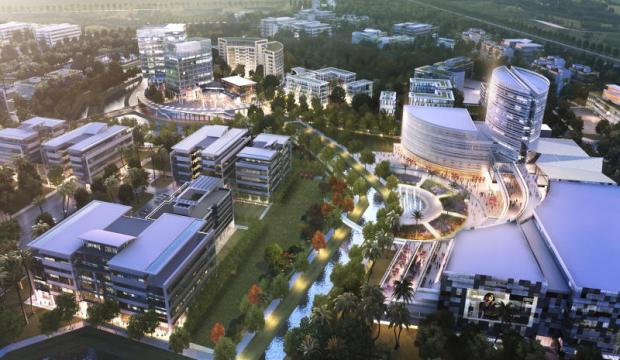
SET-listed industrial estate developer and operator Amata Corporation Plc is keen on a smart city project at its industrial estate in Chon Buri province after it completed a feasibility study with Yokohama city in Japan a few months ago.
Amata started this collaboration on the smart city, the second-largest city in Japan, last year.
"Yokohama is one of the most successful smart cities globally and it has inspired Amata to transform urban and industrial areas to be more efficient, sustainable, competitive and liveable," said Vikrom Kromadit, chief executive.
"Amata is interested in investing in a smart city in the flagship Eastern Economic Corridor [EEC] scheme, as part of the government's 4.0 initiative, which should attract new investment flows into the country."
Amata plans to transform a 42-square-kilometre industrial estate located in Chon Buri into a smart city by applying new technology, renewable energy, energy-efficient infrastructure and sustainable environmental management.
Yokohama shared its expertise in integrated urban planning, applied technology, innovative smart urban management, sustainable urban environments, disaster and climate change planning, and resilient smart city development.
Japanese firm Hitachi opened the Lumada Center Southeast Asia in Amata City Chon Buri. The Lumada Internet of Things (IoT) platform is designed for people to connect, cooperate and co-create solutions with its partners to support industries and businesses.
"Hitachi expects to improve the efficiency of 700 factories in Amata through its IoT solutions, while the centre can contribute smart solutions across domains of manufacturing, urban development, healthcare, logistics, factories, smart cities and home appliances across the region," Mr Vikrom said.
Amata is also teaming up with Siam Cement Group and Dow Thailand Group to develop the country's first recycled plastic roads in Amata's industrial estate.
Viwat Kromadit, vice-president for land development, said this partnership aims to create a sustainable business environment by turning plastic waste into asphalt roads at Amata City, in line with smart city principles.
"This is our first circular economy project. Plastic roads is a new technology in Thailand that should reduce our environmental impact," said Mr Viwat.